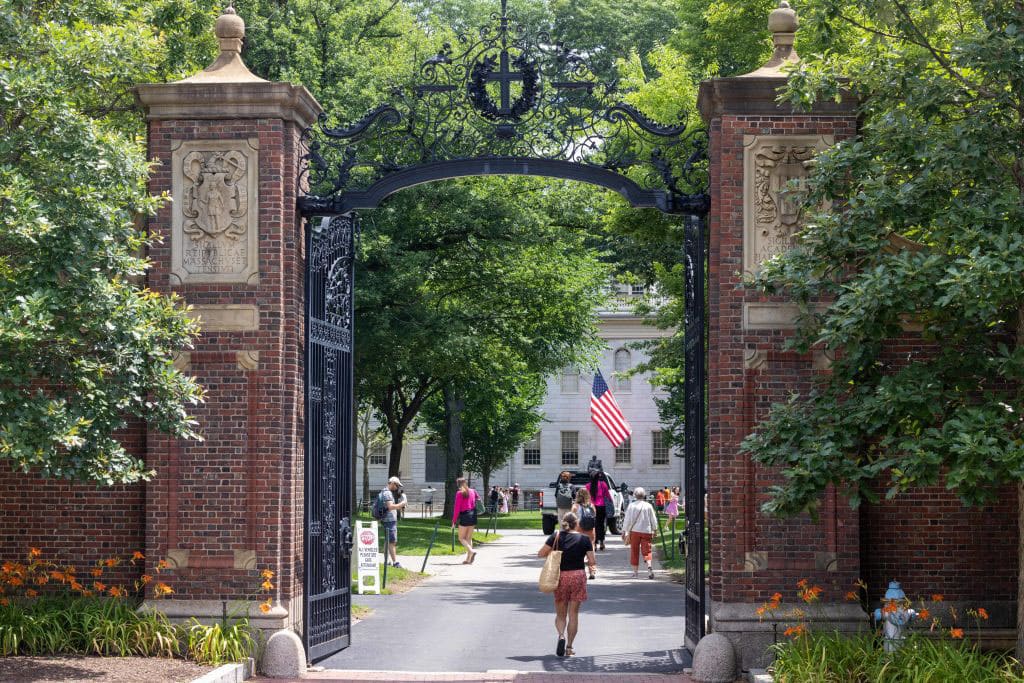 Photo by Scott Eisen/Getty Images
Photo by Scott Eisen/Getty Images For most of this year, we have been paying a tremendous amount of attention to the Israeli judicial system. But last week, the U.S. Supreme Court reminded us why it’s a good idea to keep an eye on this country’s courts too.
While Chief Justice John Roberts and his colleagues did not set off a nuclear explosion at the level of last year’s overturn of Roe v. Wade, they did issue a series of decisions that continued to upend the nation’s political, policy and cultural landscape. The Court announced landmark rulings on LGBTQ rights, religious accommodations in the workplace, President Biden’s student loan forgiveness program, and most notably, the death knell for racial preferences in college admissions.
The end of affirmative action has received the overwhelming majority of public and media attention over the last several days. But it has also received a noteworthy – and complicated – response from the Jewish community, given the changing nature of our own relationship with the issue of quotas over the years. For the first decades of the 20th century, Jews were systematically excluded from most competitive institutions of higher learning, leading many Jewish organizations to oppose racial quotas when the Court first considered the issue back in the 1970’s.
But by the early 21st century, Jewish opinion on the issue had begun to shift. Whether the change reflects a broader move politically leftward, an effort to strengthen ties with other minority communities, or simply the faded memories of the harsh discrimination directed toward young Jewish students in years past, the American Jewish community is now more likely than the overall U.S. population to support race-based preferences. While some conservative-leaning Jewish organizations praised the Court for its ruling last week, several of the most notable of the nation’s Jewish groups, including the Anti-Defamation League and the American Jewish Committee, strongly criticized the decision.
Over the years, Jewish representation at Ivy League schools and other elite universities has declined. Some of that drop has been the increased use of racial preferences to admit students from underrepresented communities, but a great deal has also been due to the marked growth in the number of students from various Asian Pacific communities. It’s worth noting that the more high-profile of the two affirmative action cases that the Court decided last week focused on the treatment of Asian Pacific students in the interview process. Most statistical analyses demonstrate that the greatest beneficiaries of the Court’s ruling will be applicants of Asian heritage, far more than white or Jewish students.
In his book “Why We’re Polarized,” New York Times columnist Ezra Klein argues that voters tend to make policy and political decisions for two different reasons. Klein cites research that demonstrates how we make political decisions not only based on how a particular policy impacts our lives but also how we take a position based on how we want to be perceived by others. Think of this as the distinction between practical decision-making as opposed to expressive decision-making (my terminology, not Klein’s).
When the Supreme Court first confronted this subject in 1978, the memories of overt discrimination against Jewish applicants were still fresh, and so opposition to quotas among Jewish voters was primarily a practical decision. But 45 years later, even during a resurgence of anti-Semitism in American society, such explicit prejudice from the guardians of this country’s temples of higher education appears a much more remote threat than in our grandparents’ time.
The question is whether those American Jews who support affirmative action on principle will set aside their expressive positions when the education of their own daughters and sons is on the line.
But the most committed defenders of racial preferences have now prioritized the elimination of legacy admissions as a way of opening more opportunities for minority students. If the children of alumni and faculty are less likely to gain admission, the impact on Jewish students would be considerable. The question is whether those American Jews who support affirmative action on principle will set aside their expressive positions when the education of their own daughters and sons is on the line.
Affirmative action is dead, but the debate over alternatives to replace it is far from over. Let’s see how the Jewish community responds when the impact hits closer to home.
Dan Schnur is the U.S. Politics Editor for the Jewish Journal. He teaches courses in politics, communications, and leadership at UC Berkeley, USC and Pepperdine. He hosts the monthly webinar “The Dan Schnur Political Report” for the Los Angeles World Affairs Council & Town Hall. Follow Dan’s work at www.danschnurpolitics.com























 More news and opinions than at a Shabbat dinner, right in your inbox.
More news and opinions than at a Shabbat dinner, right in your inbox.